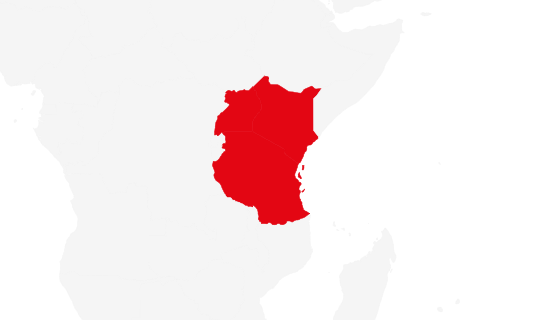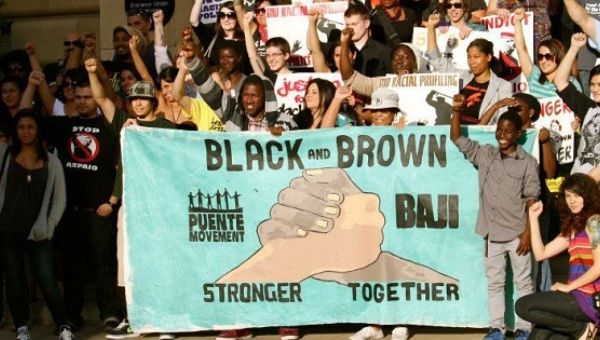- About
- Topics
- Picks
- Audio
- Story
- In-Depth
- Opinion
- News
- Donate
-
Signup for our newsletterOur Editors' Best Picks.Send
Read, Debate: Engage.
| September 25, 2017 | |
|---|---|
| topic: | Arts |
| tags: | #albinism, #Sarah Waiswa, #human rights, #Africa, #racism, #atrocities, #homophobia |
| located: | Kenya, Uganda, Tanzania |
| by: | Florian Sturm |
JournAfrica!: Sarah, “Stranger in a Familiar Land” won you the prestigious Discovery Award at this year’s Rencontres d’Arles photography festival. How was the idea of the series born?
Sarah Waiswa: I was reading an article about the atrocities that were happening to people with albinism in Tanzania and it shocked me. I approached the Albinism Society of Kenya to see if there was a way we could work together to raise awareness about the issue. In addition, I also spoke to artist Jojo Abot to help with the styling and direction of the shoot because I wanted it to be different but most importantly engaging.
Why?
SW: People already have preconceived notions of what Africa looks like and how issues should be presented. I want to show images that generate discussions while still maintaining the dignity of the subject.
How has working on “Stranger in a Familiar Land” changed your perception of Albinism in your home continent?
SW: It shines light on issues affecting the continent, issues that need to be addressed without having to present them in a stereotypical way. It also showed me that the lack of education in some areas about certain topics perpetuate instances of discrimination against minority groups or status.
How would you describe the main message of the series?
SW: Human beings have the innate capacity to be less accepting of those who are different from them, exposing these individuals to grave injustices whether subtle or severe. There is a need to see beyond the cloak of prejudice that hangs in front of our eyes.
What do you expect to see behind this cloak?
SW: That we are all human beings despite the elements that make us different. This, of course, holds true for various scenarios such as racism, homophobia, sexism and many more.
Florence, you are one of the people with albinism living in Nairobi today. What was your reaction when you first heard of Sarah’s idea?
Florence Kisombe: I was excited though it wasn't something totally new to me as I have been using art before to pass my message of beauty and empowering the society positively. However, the project was another great opportunity to educate people and am glad I took part in it.
The 8-part-series is located Kibera, the biggest slum in Nairobi and one of the biggest in the whole of Africa. Why this location?
SW: Using Kibera as the backdrop of the shoot was a metaphor of my view of the outside world, turbulent and chaotic but still functional. The conditions there are deplorable but yet people create their own economies, develop survival strategies and continue to live. In the same way, the government does little to affect change in Kibera, they also do very little to fight various injustices.
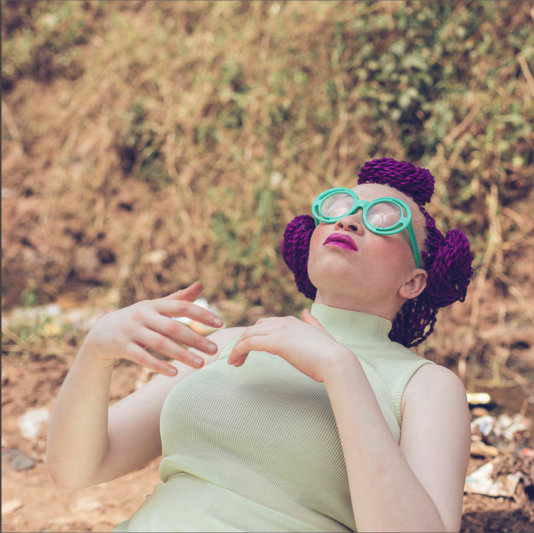
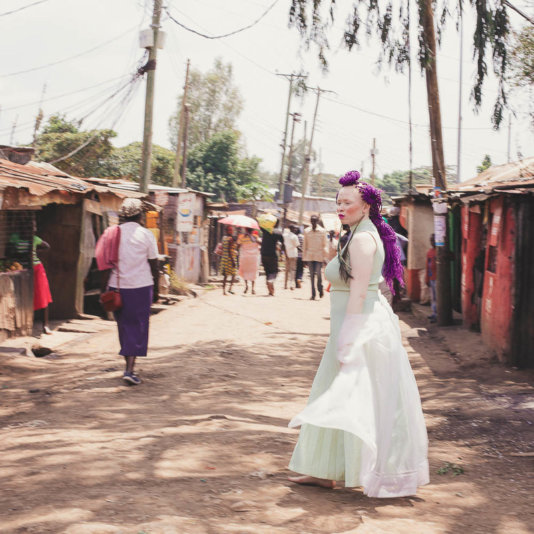
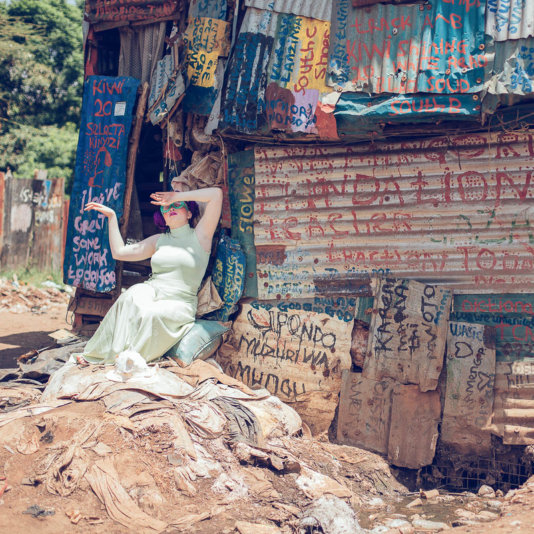
By copying the embed code below, you agree to adhere to our republishing guidelines.
